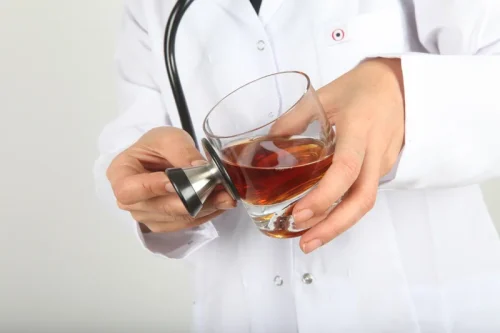
Whether you’re beginning to experience the signs of ALN, like decreased muscle strength, or if you’re trying to get away from drinking before alcohol causes irreversible damage to your body, we can help. The first step for addressing alcohol-related neuropathy is to go through alcohol rehab or otherwise stop drinking. From there, you can work with your healthcare team to determine the best treatment plan based on the severity of your condition. The first step in https://ecosoberhouse.com/ treating alcoholic neuropathy is abstaining from alcohol, sometimes through rehab. Abstinence can prevent the progression and recurrence of neuropathy and, after a few months, improve symptoms in some people. Females can be more susceptible than males to many of the negative consequences of alcohol use, such as nerve damage, as they may begin to see effects from a lower amount of alcohol consumption.
Differential Diagnosis
- Unfortunately, patient compliance is poor, and the condition often progresses, leading to poor quality of life.
- This article provides an overview of alcoholic neuropathy, including symptoms, causes, and diagnosis.
- Regular monitoring and follow-up with healthcare professionals are essential to manage the condition properly.
- Doctors tailor specific treatments and alcohol abstinence programs to the individual.
The most common findings are sensory-related and vary, including pain, numbness, and paresthesias. Pain seems consistent in the literature as 1 of the most common complaints and can be the first clinical indication of the disease. Keeping this disease process high on the differential with the right history is essential. Progression of the disease leads to symmetrical ascending motor and sensory deficits. Alcoholic neuropathy affects people who consume excessive amounts of alcohol over a long period of time. About 46% of all chronic alcohol users may eventually develop this condition.

Alcohol and Mental Health
No patients with grade III (severe sensory impairment, absent reflexes, foot drop, muscle wasting) neuropathy showed clinical improvement over the 4-week period, heroin addiction but 4/8 did show an improvement over 3–6 months. Amongst those who did not respond to thiamine, two patients with grade I neuropathy and one with grade II responded with the correction of low circulating nicotinic acid. One patient with grade I neuropathy responded with the correction of low pantothenic acid.

Motor symptoms
Nerve damage from chronic alcohol consumption can develop over several years. If your doctor confirms a diagnosis of alcoholic neuropathy, they will discuss treatment options, including help for alcohol use disorder. Medication can help reduce some of the symptoms of alcoholic neuropathy.
People with a lengthy history of alcohol misuse might experience loss of balance, pain, tingling, weakness, or numbness after drinking alcohol. The exact causes of alcohol-related neuropathy aren’t fully understood. However, researchers have found that consuming too much alcohol for long periods of time can damage the peripheral nerves. Alcohol-related neuropathy is characterized by damage to the peripheral nerves, which transmit signals between the body, spinal cord, and brain. Over time, the effects of drinking too much alcohol may cause alcoholic neuropathy. This alcohol neuropathy condition is also referred to as “alcohol-related neuropathy” to help decrease the stigma surrounding the condition.
- Alcoholic neuropathy is caused by nutritional deficiency, as well as toxins that build up in the body.
- Four studies addressed the management of patients with alcohol-related peripheral neuropathy.
- Some of the symptoms of alcoholic neuropathy can be partially reversed.
- Alcohol-related neuropathy can go away if you stop consuming alcohol and follow your treatment plan.
- Moreover, chronic alcohol use can also lead to alcohol-related brain damage, causing cognitive impairments, memory loss, and even psychiatric disorders.
- These studies addressed abstinence from alcohol consumption and administration of vitamins.
- Undergoing inpatient treatment at a rehab facility or, in milder cases, outpatient programs, can help give patients the tools they need to remain alcohol and symptom free.
- But according to the Centers for Disease Control and Prevention (CDC), drinking less or not at all may help you avoid neurological harm.
- It can be debilitating, affecting daily activities and overall quality of life.
- The most effective way to prevent alcoholic neuropathy is to limit or abstain from alcohol consumption.
While neuropathy can be the result of an injury, infection or disease, it can also be brought on by vitamin deficiencies, toxins, and drugs. In the case of alcohol neuropathy, years of excessive drinking are at the root of the issue. Good physical health is important to confidence and resilience, both of which are vital factors in preventing relapse and further health problems.

Signs and Symptoms of Alcoholic Neuropathy
Once alcohol induced neuropathy has been diagnosed, however, there are several different treatment approaches that may improve some or many of the symptoms. When ignored or left untreated, alcohol neuropathy symptoms can become much more painful, decreasing a person’s quality of life and making day-to-day activities difficult or impossible. Neuropathy occurs when one or more nerves, particularly peripheral nerves, are damaged, diseased or not functioning properly. Probably the most common symptom of mild neuropathy is chronic prickling, burning, or numbness in the arms and legs. In more severe cases, muscles will cramp, suffer frequent spasms, or even become too weak to function.
